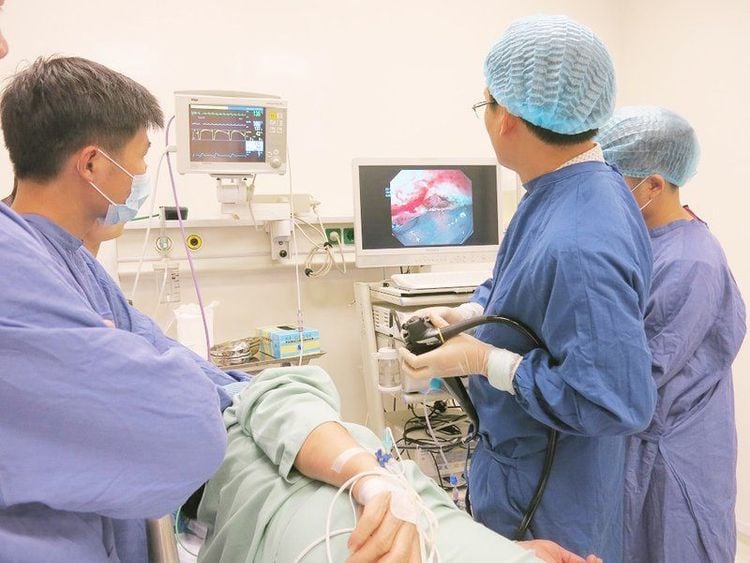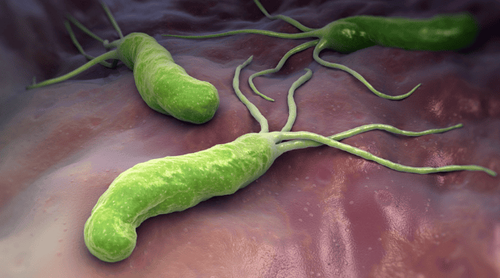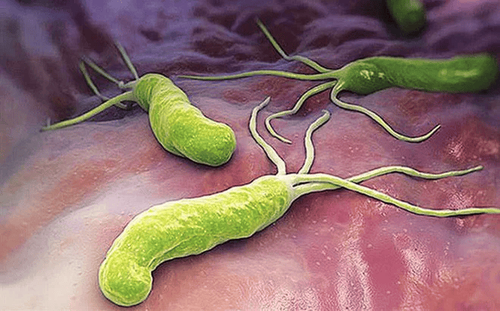This is an automatically translated article.
The article is professionally consulted by Master, Doctor Mai Vien Phuong - Gastroenterologist - Department of Medical Examination & Internal Medicine - Vinmec Central Park International General Hospital.Intestinal metaplasia in the stomach is considered a precancerous stage of the stomach. Once patients have gastric dysplasia, patients need to be closely monitored for early detection of cancerous lesions.
1. What is intestinal metaplasia in the stomach?
Gastrointestinal metaplasia is a follow-up to atrophic gastritis. When the gastric mucosal cells are severely atrophied, unable to secrete acid enough, causing the pH in the stomach to rise, then the intestinal mucosa will develop incompletely in the stomach. When there is intestinal metaplasia in the stomach, the patient has come close to stomach cancer.The annual rate of gastric cancer formation in people with gastric mucosal atrophy is about 0.1%, intestinal metaplasia is 0.25%, mild dysplasia 0.6% and severe dysplasia is 6%. Therefore, when the patient has had intestinal metaplasia, it is necessary to closely monitor for early intervention.

2. Causes of intestinal metaplasia in the stomach
Intestinal metaplasia is a sequel to atrophic gastritis. Atrophic gastritis is usually caused by H. The main route of transmission of Hpv virus is mouth-to-mouth or fecal-oral. Mouth - mouth occurs when sharing chopsticks, spoons, kissing...Also, fecal - mouth occurs when eating raw food... unwashed, drinking unboiled water,...In addition, other causes Others can cause intestinal metaplasia such as drinking alcohol, reflux of bile, eating hot spicy foods, ... leading to effects on the gastric mucosa leading to inflammation.
3. Symptoms of intestinal metaplasia in the stomach
Patients with gastritis and intestinal metaplasia often have the following common signs: stomach pain, vomiting and nausea, dizziness, anorexia, weight loss, peptic ulcer, iron deficiency anemia.In addition, gastritis can also lead to vitamin B12 deficiency and cause pernicious anemia with symptoms such as lack of clarity, dizziness, chest pain, palpitations, ringing in the ears, numbness of the limbs, itching. ran, walking unsteadily...
4. How to diagnose intestinal metaplasia in the stomach?

Breath test technique - breath test has a very high accuracy in diagnosing HP bacteria, about 90-98%, and is a non-invasive test (no need to conduct a gastroscopy to give birth). sampling is one or two pieces of gastric mucosa), so breath test is now receiving the attention and consensus of many patients.
However, it should be noted that carbon 14C is a radioactive isotope, so it should not be used by pregnant women, breastfeeding women or children. In contrast, carbon 13C is not a radioactive isotope, so it can be assigned to all objects.
Currently, hospitals under the Vinmec International General Hospital system, use 13C carbon isotope in the breath test to diagnose H. pylori bacteria with the leading advanced machine with 02 airbags, both affordable and affordable. diagnostic treatment is very high (> 95%) while ensuring safety for patients.
5. How to prevent gastrointestinal metaplasia
To prevent Hp infection, it is necessary to eat hygienically, eat cooked, drink hot, do not share dishes with sick people Limit alcohol and hot, spicy foods. When there are symptoms of gastritis, the patient should be examined to determine the cause of the disease. Strictly follow the instructions and treatment regimen of the doctor. When the disease has progressed to the stage of intestinal metaplasia, it is necessary to closely monitor for early detection of cancerous lesions. Usually, these patients should have a checkup endoscopy every 6 months to 1 year. With nearly 10 years of experience in the field of Gastrointestinal Endoscopy, Master, Doctor Mai Vien Phuong has successfully performed many complicated endoscopic interventions, detecting many digestive cancer lesions at an early stage. , bringing health and peace of mind to many patients. Doctor Phuong specializes in early cancer diagnosis in stomach and colon, endoscopic retrograde cholangiopancreatography in the treatment of biliary tract stones, biliary atresia, cholangiocarcinoma, biliary fistula and treatment of cardiac spasms with technique of opening muscle through the mouth to treat cardiac spasms.
Please dial HOTLINE for more information or register for an appointment HERE. Download MyVinmec app to make appointments faster and to manage your bookings easily.














